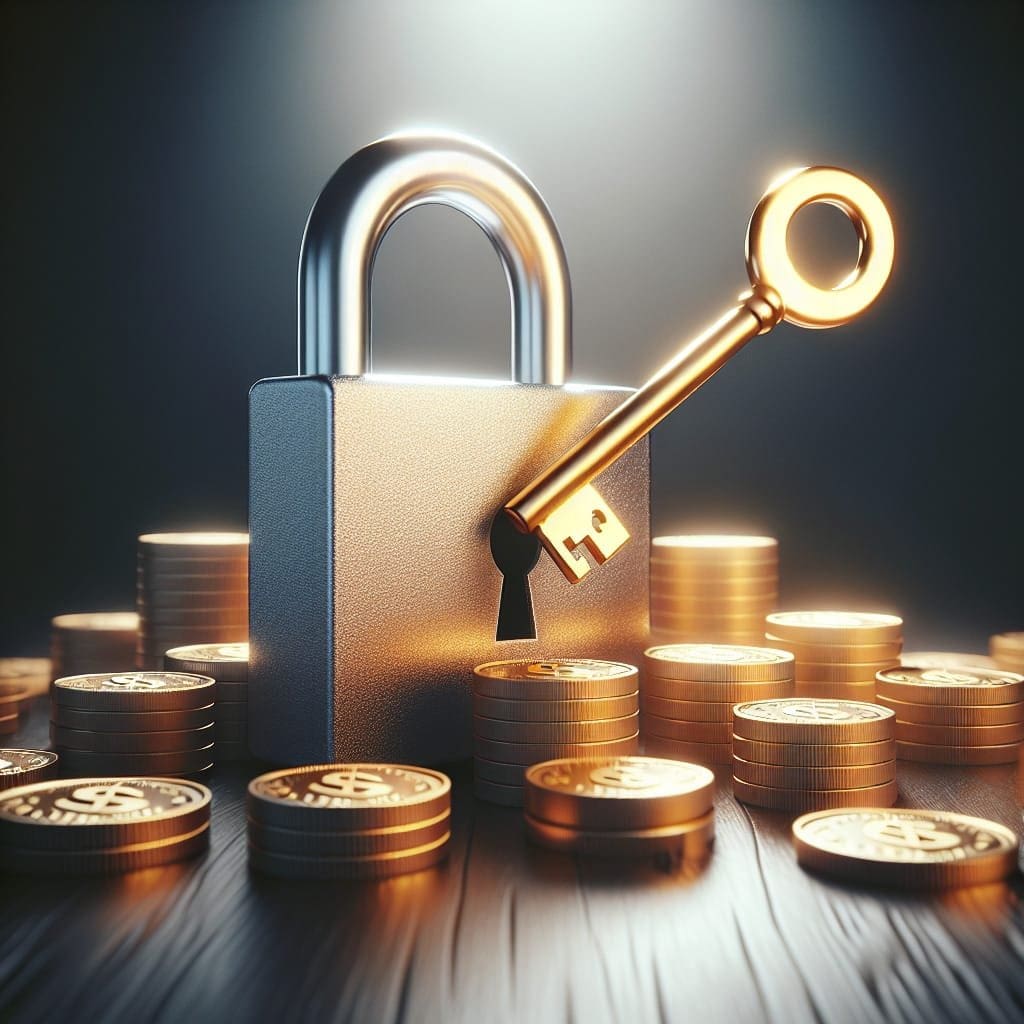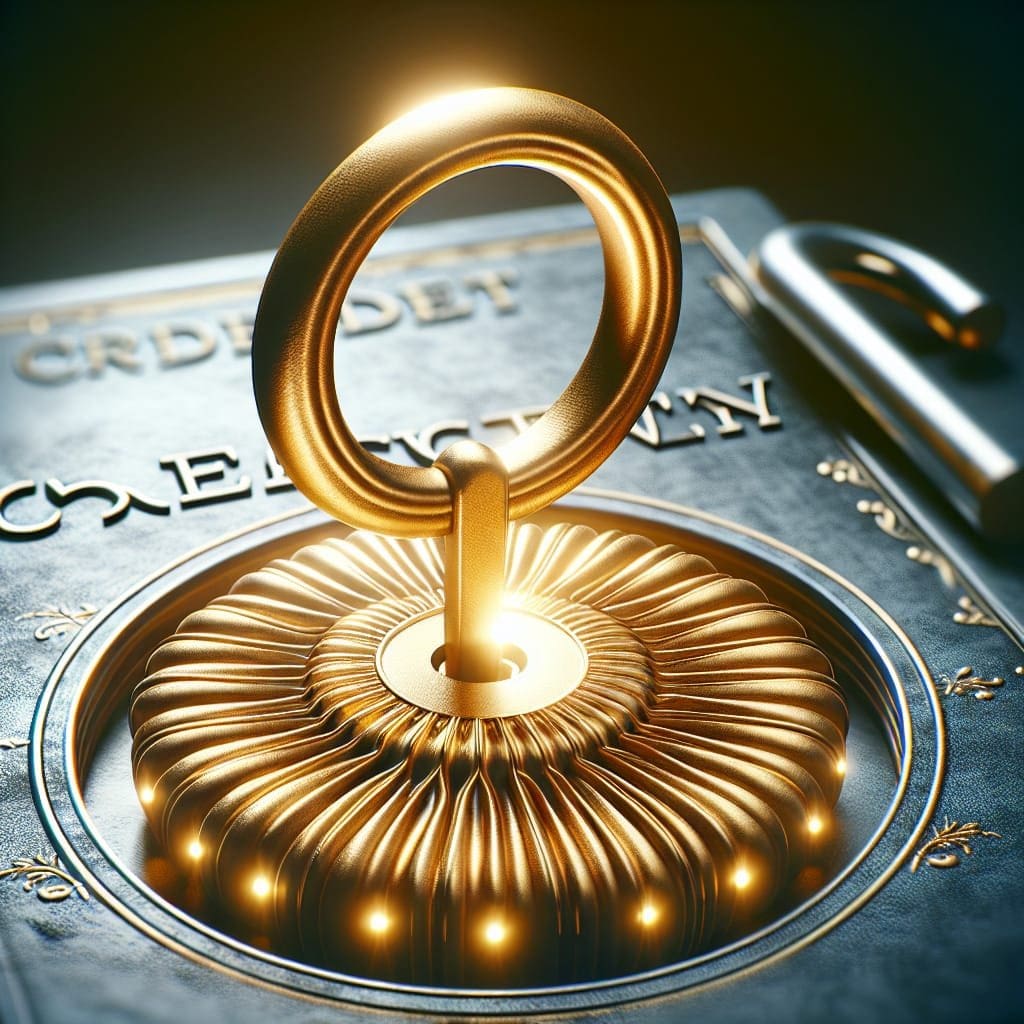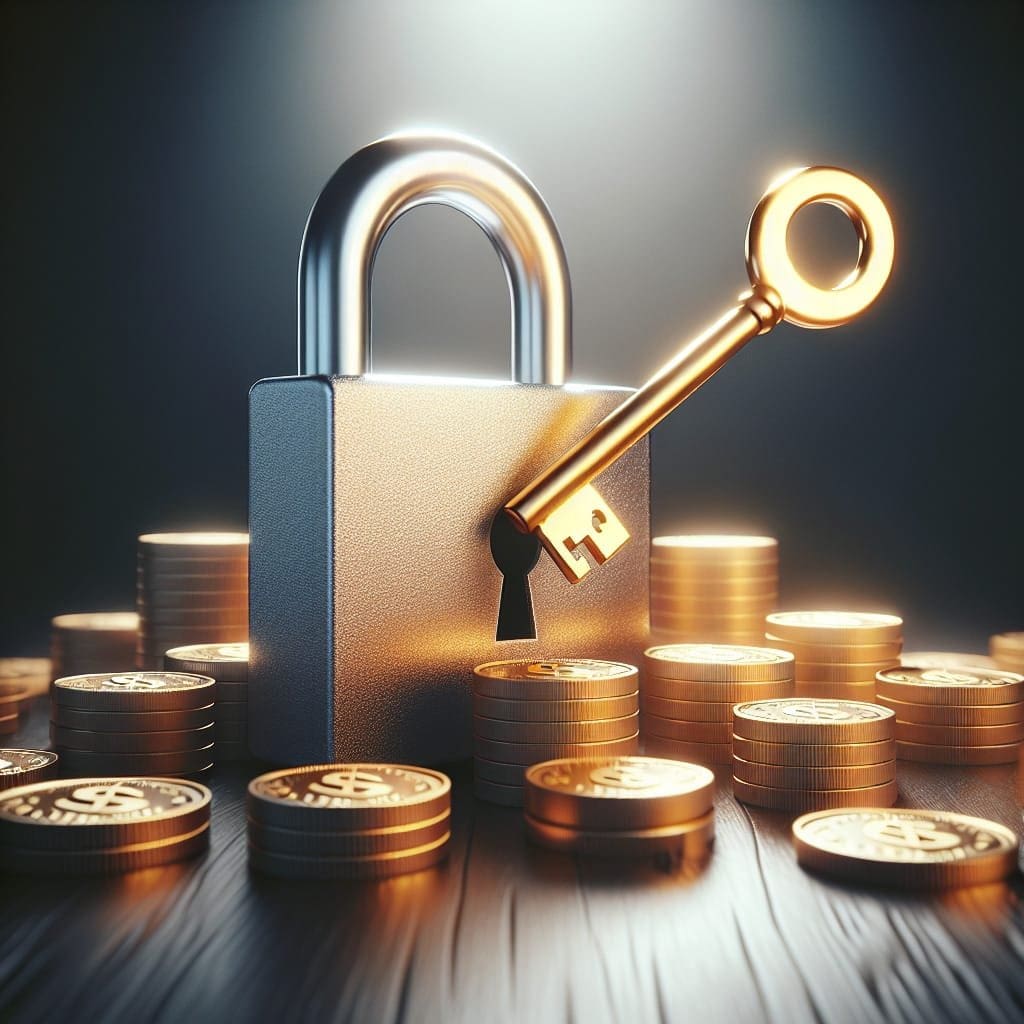If you're looking to rebuild your credit score, finding the right credit card can make all the difference. Whether you've encountered financial difficulties in the past or you're just starting out, the best credit cards for bad credit can provide an opportunity to rebuild and establish a positive credit history. These credit cards are designed specifically for individuals with less-than-perfect credit, offering a chance to regain financial stability while enjoying the perks and benefits that credit cards can offer. In this article, we will highlight some of the top credit cards available to help you on your journey towards better credit.
/4TXoXSwM2Cs” frameborder=”0″ allowfullscreen>
Secured Credit Cards
What is a secured credit card?
A secured credit card is a type of credit card that requires a cash deposit as collateral to establish a line of credit. The cash deposit acts as security for the credit card issuer, reducing their risk in case you fail to make payments. The deposit typically determines your credit limit, with most secured credit cards offering a credit limit equal to the deposit amount.
Benefits of secured credit cards
Secured credit cards offer several benefits for individuals with bad credit or no credit history. Firstly, they provide an opportunity to rebuild or establish credit. By making timely payments and demonstrating responsible credit usage, you can improve your credit score over time. Secondly, secured credit cards can help in financial emergencies, as they provide a safety net for unexpected expenses. Additionally, using a secured credit card can help you develop good financial habits, such as managing your expenses and making payments on time.
Top secured credit cards for bad credit
When it comes to choosing a secured credit card, it's important to consider factors such as the annual fee, interest rates, credit limit, and any additional features offered. Some of the top secured credit cards for bad credit include the Capital One Secured Mastercard, Discover it Secured Credit Card, and the OpenSky Secured Visa Credit Card. These cards have features such as no annual fees, flexibility in deposit amounts, and opportunities to upgrade to an unsecured card with responsible usage.
Unsecured Credit Cards
What is an unsecured credit card?
Unlike secured credit cards, unsecured credit cards do not require any collateral or deposit. These cards are based solely on the creditworthiness of the applicant and their ability to repay the borrowed amount. Unsecured credit cards provide a line of credit that can be used for purchases, and the cardholder is not required to have any funds in a savings account or a deposit with the credit card issuer.
Benefits of unsecured credit cards
Unsecured credit cards offer several advantages for individuals with bad credit. Firstly, they provide an opportunity to rebuild credit and demonstrate responsible credit usage. By consistently making payments on time and managing your credit utilization ratio, you can improve your credit score over time. Unsecured credit cards also offer more flexibility and convenience, as they do not require a cash deposit. Additionally, unsecured credit cards often come with perks such as rewards programs and introductory offers.
Top unsecured credit cards for bad credit
When searching for the best unsecured credit cards for bad credit, it's important to consider factors such as interest rates, fees, credit limits, and any additional benefits. Some of the top unsecured credit cards for bad credit include the Capital One Platinum Credit Card, Credit One Bank Platinum Visa for Rebuilding Credit, and the Indigo Platinum Mastercard. These cards offer features such as low annual fees, opportunities for credit line increases, and special offers for individuals with less-than-perfect credit.

Credit-builder Loans
What is a credit-builder loan?
A credit-builder loan is a type of loan designed to help individuals with bad credit or no credit history improve their credit scores. These loans work by borrowing a small amount of money, usually deposited into a savings account or certificate of deposit (CD), and making regular payments over a set period. The payments are reported to credit bureaus, helping to establish a positive payment history and improve creditworthiness.
Benefits of credit-builder loans
Credit-builder loans offer several benefits for individuals looking to improve their credit. Firstly, they provide an opportunity to build credit from scratch or rebuild credit after financial setbacks. By making timely payments, you can demonstrate your ability to manage debt responsibly and improve your credit score. Credit-builder loans also offer the convenience of saving money while simultaneously building credit. Additionally, credit-builder loans often come with reasonable interest rates and terms, making them an accessible option for individuals with bad credit.
Top credit-builder loans for bad credit
When considering credit-builder loans, it's important to compare factors such as interest rates, fees, loan terms, and the reporting of payment history to credit bureaus. Some of the top credit-builder loans for bad credit include Self Credit Builder Account, MoneyLion Credit Builder Plus, and CreditStrong Credit Builder Account. These loans offer features such as low starting monthly payments, no hidden fees, and the opportunity to build credit through responsible repayment.
Store Credit Cards
What are store credit cards?
Store credit cards, also known as retail credit cards, are credit cards issued by specific retailers or brands. These cards can only be used for purchases at the corresponding store or affiliated stores. Store credit cards often come with special perks and rewards programs, designed to incentivize customers to shop at the specific retailer.
Benefits of store credit cards
Store credit cards offer several benefits, especially for individuals with bad credit. Firstly, they provide an opportunity to obtain credit when traditional credit card issuers may be hesitant to approve applications. Store credit cards can help individuals with bad credit rebuild or establish credit by demonstrating responsible credit usage and making timely payments. Additionally, store credit cards often come with exclusive discounts, special financing options, and rewards programs tailored to the store's offerings.
Top store credit cards for bad credit
When considering store credit cards for bad credit, it's important to compare factors such as interest rates, fees, rewards programs, and any additional benefits offered. Some of the top store credit cards for bad credit include the Target REDcard, Kohl's Charge card, and the Amazon Store Card. These cards offer features such as no annual fees, special financing options, and exclusive discounts for cardholders.


Prepaid Cards
What are prepaid cards?
Prepaid cards, also known as prepaid debit cards, are payment cards that are loaded with funds in advance. These cards are not linked to a bank account or credit line. Prepaid cards can be used for purchases wherever the card is accepted, and the spending is limited to the amount loaded onto the card. They are often considered an alternative to traditional credit cards for individuals with bad credit or those who prefer to have more control over their spending.
Benefits of prepaid cards
Prepaid cards offer several benefits for individuals with bad credit or those who prefer to manage their spending. Firstly, they provide a way to make electronic payments and online purchases without the need for a traditional credit card. Prepaid cards offer convenience and flexibility in managing your finances, as you can only spend the amount loaded onto the card. Additionally, prepaid cards often come with security features such as protection against unauthorized transactions.
Top prepaid cards for bad credit
When looking for the best prepaid cards for bad credit, it's important to consider factors such as fees, reload options, customer service, and any additional features offered. Some of the top prepaid cards for bad credit include the Netspend Prepaid Visa Card, PayPal Prepaid Mastercard, and the Bluebird by American Express card. These cards offer features such as no credit check, direct deposit options, and convenient ways to reload funds.
Secured vs. Unsecured Credit Cards
Differences between secured and unsecured credit cards
The main difference between secured and unsecured credit cards lies in the need for collateral. Secured credit cards require a cash deposit as collateral, while unsecured credit cards do not. Secured credit cards typically have lower credit limits, often equal to the deposit amount, while unsecured credit cards provide higher credit limits based solely on the applicant's creditworthiness. Secured credit cards are often easier to obtain for individuals with bad credit, while unsecured credit cards may require a higher credit score or history of responsible credit usage.
Which type is better for bad credit?
The choice between secured and unsecured credit cards for bad credit depends on individual circumstances and preferences. Secured credit cards are often recommended for individuals with bad credit or those looking to establish credit, as they provide a structured way to build credit through a cash deposit. Unsecured credit cards may be more suitable for individuals with slightly better credit or those who prefer not to tie up their funds with a deposit. Ultimately, both types of cards can help improve credit when used responsibly.
How to choose between secured and unsecured credit cards
When choosing between secured and unsecured credit cards, it's important to consider factors such as the credit limit, interest rates, fees, and any additional benefits or features offered. For individuals with bad credit, secured credit cards may be a more accessible option initially, allowing them to build credit and eventually qualify for unsecured cards. However, it's important to review the terms and conditions of each card and choose the one that aligns with your financial goals, payment capabilities, and preferences.
Building Credit with Bad Credit
How to rebuild credit with bad credit
Rebuilding credit with bad credit may seem challenging, but it is certainly possible with the right strategies. Firstly, it's important to make all payments on time, as payment history plays a significant role in determining your credit score. Set up reminders or automatic payments to ensure timely payments. Secondly, focus on reducing existing debt and keeping credit utilization low. Aim to use less than 30% of your total available credit. Thirdly, consider diversifying your credit mix by having a combination of different types of credit accounts, such as credit cards, loans, or a mortgage.
Best practices for building credit
Building credit with bad credit requires adopting good financial habits. Firstly, create a budget and stick to it, ensuring that you have enough funds to cover your expenses and make timely payments. Secondly, avoid applying for multiple forms of credit at once, as it can negatively impact your credit score. Thirdly, regularly monitor your credit report to identify any errors or discrepancies that may be affecting your credit. Lastly, be patient and consistent in your efforts, as building credit takes time and dedication.
Mistakes to avoid when trying to build credit with bad credit
When trying to build credit with bad credit, it's important to avoid certain mistakes that can hinder your progress. Firstly, avoid missing payments, as this can severely damage your credit score. Secondly, be cautious of accruing too much debt, as high levels of debt can negatively impact your creditworthiness. Thirdly, refrain from closing old credit card accounts, as this can shorten your credit history and potentially lower your credit score. Lastly, be mindful of applying for new credit too frequently, as multiple credit inquiries can be seen as a red flag by lenders.
Factors to Consider When Choosing a Credit Card
Interest rates and fees
When choosing a credit card, it's important to consider the interest rates and fees associated with the card. Look for cards with low annual percentage rates (APRs) and minimal fees, such as annual fees, late payment fees, and foreign transaction fees. Understanding the interest rates and fees can help you determine the overall cost of using the card.
Credit limit
The credit limit, or the maximum amount you can borrow on your credit card, is an important factor to consider. Ensure that the credit limit offered meets your spending needs while also considering the impact on your credit utilization ratio. It's important to have a credit limit that allows you to maintain a low utilization ratio to positively impact your credit score.
Secured or unsecured
Deciding between a secured or unsecured credit card depends on your credit history and personal circumstances. Secured credit cards may be more accessible for individuals with bad credit or no credit history, as they require a cash deposit as collateral. Unsecured credit cards, on the other hand, may require a higher credit score or history of responsible credit usage. Consider your financial goals and preferences when choosing between secured and unsecured credit cards.
Credit-building features
Some credit cards offer specific features designed to help individuals build credit. Look for cards that report your payment history to credit bureaus, as this will help establish a positive credit history. Additionally, some cards offer credit score tracking and educational resources to assist with credit-building efforts. These features can be valuable in your journey to improving your credit.
Reputation of the lender
When choosing a credit card, it's important to consider the reputation of the lender. Research the credit card issuer's customer service reputation, their track record with handling credit disputes, and their overall financial stability. Choosing a reputable lender can provide peace of mind and ensure a positive experience with your credit card.
Common Terms and Definitions Related to Credit Cards
APR (Annual Percentage Rate)
APR, or Annual Percentage Rate, refers to the annualized interest rate charged on outstanding balances on a credit card. It represents the cost of borrowing money and is expressed as a percentage. It's important to compare APRs when choosing a credit card, as it directly affects the overall cost of carrying a balance on the card.
Credit utilization ratio
The credit utilization ratio is the percentage of available credit that you have utilized. It is an important factor in determining your credit score. To maintain a healthy credit utilization ratio, aim to use less than 30% of your total available credit. A lower credit utilization ratio demonstrates responsible credit usage and can positively impact your credit score.
Credit score
A credit score is a numerical representation of your creditworthiness. It is calculated based on various factors such as your payment history, credit utilization ratio, length of credit history, types of credit used, and new credit inquiries. Credit scores range from 300 to 850, with higher scores indicating better creditworthiness. A good credit score can help you qualify for better interest rates and higher credit limits.
Grace period
A grace period refers to the amount of time you have to pay your credit card bill in full before interest is charged on new purchases. Grace periods can vary, but typically range from 21 to 25 days. If you pay off your balance in full before the grace period ends, you can avoid paying interest on the purchases made during that billing cycle.
Late payment fee
A late payment fee is a fee charged when you fail to make a minimum payment by the due date on your credit card statement. Late payment fees can vary depending on the credit card issuer but typically range from $25 to $40. It's important to make all payments on time to avoid late payment fees and potential damage to your credit score.
Conclusion
When it comes to credit cards for bad credit, there are several options available to help individuals improve their creditworthiness. Secured credit cards offer a structured way to build credit, while unsecured credit cards provide more flexibility. Credit-builder loans also offer an avenue to improve credit scores through responsible repayment. Store credit cards and prepaid cards can be suitable options for individuals with specific needs or preferences. Regardless of the chosen credit card, it's important to use it responsibly, make timely payments, and keep credit utilization low. Building credit takes time and effort, but with the right strategies and financial habits, individuals can overcome bad credit and achieve a healthier financial future.






